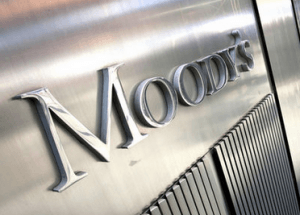Moody’s lowers Congo’s rating due to low oil prices
 Credit rating agency, Moody’s has downgraded the government issuer rating of the Republic of the Congo from B1 to B2 with a negative outlook due to low oil price shock, completing a review started on March 4, 2016.
Credit rating agency, Moody’s has downgraded the government issuer rating of the Republic of the Congo from B1 to B2 with a negative outlook due to low oil price shock, completing a review started on March 4, 2016.
The review was to assess the extent of the impact of low oil prices on the country’s liquidity risk, the government’s balance sheet and the credit support offered by its membership of the franc Zone.
Moody’s has also lowered the Republic of the Congo’s country and deposit ceilings from Ba1 to Ba2, driven by the rating downgrade.
The agency said it expects the balance sheet of the Republic of the Congo’s government to continue to deteriorate substantially in 2016-17 due to the oil price shock and a limited fiscal adjustment capacity relative to the scale of the shock.
Additionally, it said the government’s large net financing requirements, large fiscal deficits and constrained financing options, exert pressure on the liquidity position of the government.
“The government finances are particularly sensitive to oil prices. Republic of Congo’s finances were strong prior to
the downward adjustment in oil prices, but will be substantially weaker by the end of 2017, despite likely further fiscal consolidation measures.”
“The drop in oil prices is causing a marked diminution in government revenue (-48% in 2015), of which 69 per cent was derived from oil in 2014. Meanwhile, the government’s capacity to countervail the negative impact on its finances – by lowering expenditure as well as boosting revenues and stimulating the non-oil economy – remains limited relative to the scale of the task,” the agency said.
From the large deficits – 16% of GDP in 2016 and 11% in 2017 – Moody’s expects the government’s debt to increase to 54 per cent of GDP in 2016, up from 21 per cent in 2013.
Despite the downgrade, Moody’s said the Republic of the Congo’s membership of the franc Zone is a significant credit support and although there is growing external imbalances and diminishing foreign exchange reserve levels, the country’s external vulnerability remains contained.
By Emmanuel Odonkor
